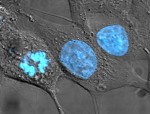Why Blog on OncotypeDx and BC Pathology?
I can’t even begin to think of how much money this might save, besides sparing so many women from the messy business of infusions, temporary or semi-permanent IV catheters, prophylactic or sometimes urgent antibiotics, Neulasta injections, anti-nausea drugs, cardiac tests and then some occasional deaths in treatment from infection, bleeding or, later on, from late effects on the heart or not-so-rare secondary malignancies like leukemia. And hairpieces; we could see a dramatic decline in women with scarves and wigs.
